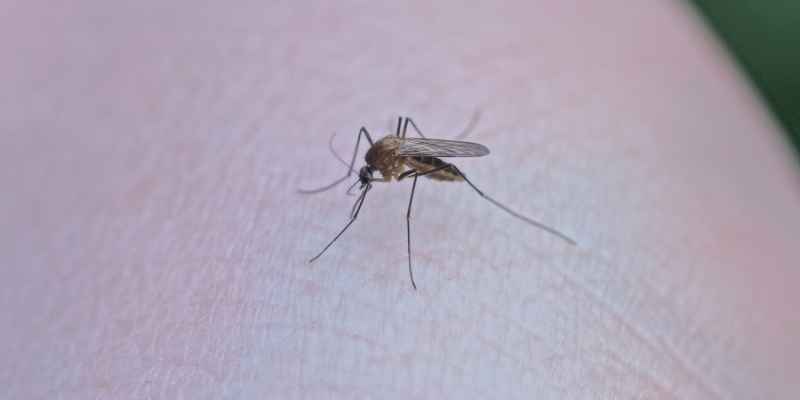Yes, cedar wood does repel mosquitoes naturally due to the oil it contains. Cedar’s aromatic properties deter various insects like termites, moths, ants, and more, making it an effective mosquito repellent.
Additionally, the scent of cedar originates from the oil trapped within the wood, providing a natural and long-lasting solution to keep mosquitoes at bay. Cedar wood’s insect-repelling abilities extend to clothing moths, beetle larvae, silverfish, termites, and cockroaches, making it a versatile and eco-friendly option for pest control.
Moreover, cedar bark can be used to further enhance its mosquito-repelling properties when added to landscaping or fires, ensuring a bug-free environment for an extended period.
The Repelling Properties Of Cedar Wood
Cedar wood has long been known for its ability to repel mosquitoes and other insects. The aroma of cedar is a natural deterrent for pests, including termites, ants, moths, and more. The smell of cedar comes from the oil trapped in the wood, which emits a strong and pleasant fragrance that insects find repulsive.
The distinct aroma of cedar is what makes it such an effective mosquito repellent. The fragrance is pleasant to humans but acts as a natural deterrent for mosquitoes and other bugs. When the scent of cedar is present, mosquitoes are less likely to approach, reducing the risk of bites and potential diseases they carry.
In addition to its aroma, cedar wood has other repelling properties that make it effective against a variety of insects. Not only does it repel adult mosquitoes, but it also deters clothing moths, larvae, silverfish, termites, carpet beetles, and cockroaches, among others. The repellency of cedar increases with prolonged exposure, making it a long-lasting and reliable method of insect control.
The repelling power of cedar wood can be attributed to a chemical compound called thujone. This compound is found in cedar logs and bark and is responsible for the strong scent that repels insects. Mosquitoes, in particular, find thujone unbearable, making cedar wood an effective and natural mosquito repellent.
Overall, cedar wood is a powerful tool to keep mosquitoes at bay. Its natural aroma and repelling properties make it a popular choice for outdoor furniture, decking, and landscaping. By incorporating cedar wood into your outdoor space, you can enjoy the benefits of a mosquito-free environment while adding a touch of natural beauty to your surroundings.
Types Of Insects Repelled By Cedar Wood
The aromatic oils in cedar wood naturally repel a variety of insects, including mosquitoes, termites, ants, moths, and cockroaches. The scent of cedar comes from the oil trapped in the wood, making it an effective and natural insect repellent.
Termites
Cedar wood naturally deters termites due to its aromatic oils, acting as a repellent for up to two years.
Ants
The scent of cedar serves as a barrier for ants, keeping them at bay and preventing infestations in your home.
Moths
Adult clothing moths and larvae are repelled by the cedar aroma, making cedar wood an effective deterrent for moth-related issues.
Mosquitoes
Cedar wood repels mosquitoes through its natural oil content, particularly effective when used in landscaping or as cedar mulch.
Cedar Wood As A Natural Insect Repellent
Cedar wood is known for its natural insect-repelling properties, including mosquitoes. The aroma of cedar, attributed to its oil content, acts as a deterrent for various insects, making it an effective and eco-friendly option for repelling mosquitoes and other pests.
Cedar wood’s repellency can last for up to two years, making it a long-lasting solution for keeping insects at bay.
Long History Of Use
The use of cedar wood as a natural insect repellent dates back centuries, with historical accounts highlighting its effectiveness in deterring various pests, including mosquitoes. Native Americans and early settlers utilized cedar to fend off insects due to its potent aroma and natural properties.
Testimonies And Research
Many individuals have attested to the insect-repelling capabilities of cedar wood, supporting the anecdotal evidence with scientific research. Studies have shown that cedar’s oil, thujone, is particularly effective in repelling mosquitoes and a range of other insects. There is a wealth of documented testimonies and research, further cementing cedar wood’s reputation as a natural insect repellent.
Effectiveness Of Cedar
Cedar’s effectiveness as an insect repellent is unmatched, with the wood exhibiting repellent properties against a myriad of pests, including clothing moths, termites, cockroaches, and mosquitoes. The aroma of cedar, emanating from its natural oils, serves as a powerful deterrent to these insects, making it a popular choice for natural insect control.
Cedar Mulch And Bug Repellency
The aromatic properties of cedar make it an effective natural insect repellent, including mosquitoes. The aroma of cedar wood, derived from the oil trapped within the wood, naturally deters a range of insects, such as termites, ants, moths, and mosquitoes, among others. The repellency increases with prolonged exposure.
Cedar mulch is known to repel bugs for up to two years. As it breaks down, it releases aromatic oils that are unpleasant to many insects, including fleas, ticks, and mosquitoes. This natural method of bug repelling also helps retain moisture in the soil and reduces weed growth.
Other Benefits Of Cedar Wood
Retaining Moisture In Soil
Cedar wood helps in retaining moisture in the soil, creating a favorable environment for plant growth.
Reduction Of Weed Growth
Cedar wood also aids in reducing weed growth, minimizing the competition for nutrients among plants.

How To Use Cedar Wood For Pest Control
If you’re looking for a natural and effective way to repel pests like mosquitoes, then cedar wood is your answer. Cedar has long been known for its ability to repel insects, thanks to the oil trapped in the wood that emits a distinct aroma. In this article, we’ll explore three different ways you can use cedar wood for pest control: installing cedar logs, sprinkling cedar bark, and using cedar mulch.
Installing Cedar Logs
One of the most effective ways to repel mosquitoes with cedar wood is by installing cedar logs around your outdoor space. The bark of the cedar tree contains a chemical compound called thujone, which mosquitoes absolutely despise. To use cedar logs for pest control, simply place them strategically around your yard, patio, or garden. Not only will they repel mosquitoes, but they’ll also add a touch of natural beauty to your outdoor space.
Sprinkling Cedar Bark
If you don’t have access to cedar logs, you can still enjoy the mosquito-repelling benefits of cedar by sprinkling cedar bark around your landscaping. This shredded cedar bark can be bought from stores specializing in natural pest control products. Sprinkle the cedar bark around your plants, mulch, or outdoor seating areas to create a barrier that mosquitoes will want to avoid. Plus, the cedar aroma will give your outdoor space a pleasant and inviting scent.
Using Cedar Mulch
Want to repel bugs for up to two years? Try using cedar mulch. Cedar mulch releases aromatic oils that bugs find unpleasant, including fleas, ticks, and, of course, mosquitoes. Not only does cedar mulch repel pests, but it also helps retain moisture in the soil and reduces weed growth. Simply spread a layer of cedar mulch around your garden or landscaping, and enjoy a bug-free outdoor experience.
| Installing Cedar Logs | Sprinkling Cedar Bark | Using Cedar Mulch |
|---|---|---|
| Effectively repels mosquitoes | Creates a barrier that mosquitoes want to avoid | Repels bugs for up to two years |
| Enhances the beauty of your outdoor space | Adds a pleasant aroma to your surroundings | Helps retain moisture in the soil |
| Reduces weed growth |
Using cedar wood for pest control not only keeps pesky bugs at bay but also provides a natural and environmentally friendly alternative to chemical-based repellents. Whether you choose to install cedar logs, sprinkle cedar bark, or use cedar mulch, you can enjoy a bug-free outdoor oasis that is both beautiful and inviting.
Frequently Asked Questions On Does Cedar Wood Repel Mosquitoes
Does Cedar Repel Mosquitoes?
Cedar wood naturally repels mosquitoes and other insects due to the oil trapped in the wood.
What Does Cedar Wood Repel?
Cedar wood repels insects like termites, ants, moths, mosquitoes, and cockroaches due to its aromatic oil. It acts as a natural deterrent and prevents infestations.
What Type Of Wood Repels Mosquitoes?
Cedar wood repels mosquitoes due to its aroma and the oil trapped in the wood. The bark of the cedar tree contains a chemical compound called thujone that mosquitoes dislike. Adding shredded cedar bark to fires or sprinkling it around landscaping mulch can naturally keep mosquitoes away.
How Long Does Cedar Wood Repel Insects?
Cedar wood repels insects with its aromatic oils for up to two years, including mosquitoes, fleas, ticks, and others.
Conclusion
Cedar wood’s aroma, derived from trapped oil, effectively repels various insects including mosquitoes. The repellent power of cedar increases with exposure, making it a natural bug deterrent. Cedar bark and mulch with thujone compound are recommended for mosquito control. Harness nature’s brilliance with cedar.


